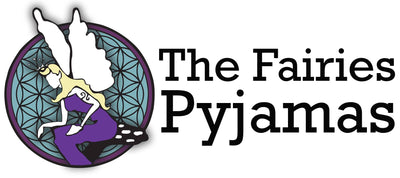Fairtrade + Organic Principles
Fairtrade Principles
The Fairies Pyjamas provide a choice for consumers.
The Fairies Pyjamas design and sell Fair Trade garments that are assembled by workers who are paid a fair salary while working in a safe environment. Working with our Fair Trade factory in Kathmandu, allows you to choose Fair Trade garments and we provide a way for you to support Fair Trade practices. When you support Fair Trade you support healthy employment and dignity for all people.
Together we CAN make a difference.
As consumers become more informed about the practices and politics of international production and trade,they want to use their purchasing power to support their concerns of social justice and environmental sustainability.
Kimberly S. Grimes,
Made By Hand International Cooperative,
S. Bethany, DE
Fair Trade Criteria
- Pay a fair wage in the local context.
- Offer employees opportunities for advancement
- Engage in environmentally sustainable practices
- Be open to public accountability
- Build long term trade relationships
- Provide equal opportunities for all people, particularly the most disadvantaged.
- Provide healthy and safe working conditions.
- Ensure that there is no abuse of child labour.
Source: Fair Trade Federation
Organic Principles
In 2012 we introduced Organic Stretchy Cotton into our Women's and Accessories line. In 2013 we are expanding the items available in this certified fabric to Mens tops. We are also introducing Certified Organic Twill cotton for pants, vests and accessories like our Hip Pouches.
We've sourced organic stretchy cotton blend (similar to lycra), and organic twill from nearby India so it doesn't have to travel far. We are moving away from polyester fibers like fleece. We've made this step to reduce our impact on the environment - for our planet. Certified Organic cotton is also hypo-allergenic and the quality of our colors will last for years of your enjoyment.
Did you know?
- A cotton t-shirt blended with polyester can release approximately one quarter of its weight in air pollutants and ten times its weight in carbon dioxide. Each organic fiber t-shirt you buy eliminates the use of 150 grams of agricultural chemicals. It takes approximately one pound of chemicals to grow three pounds of conventional cotton, while organic cotton is grown chemical free.
- Certified organic cotton is cotton grown without the use of harmful pesticides, herbicides or artificial fertilizers. It is also free of formaldehyde finishes. Organic cotton wears well and is extremely breathable, unlike synthetics that pill, emit static electricity, prematurely age and trap perspiration. Non-organic cotton is commonly portrayed as natural, yet it is highly cultivated and processed which contaminates groundwater and ultimately drinking water, poisoning the food chain.
- Most people suffering from skin dermatological conditions can comfortably wear garments made from organic fibers such as organic cotton or bamboo. Depending on your level of skin sensitivity, you may need to wear hypoallergenic, dye-free clothing.
- Natural and organic fiber fabrics are processed with as few chemicals and harmful impact on the environment as possible. By purchasing natural and organic fiber clothing you are supporting environmental causes. By purchasing sustainable clothing that reduces environmental impact, clothing that supports and nourishes the earth and the lives of all people involved in the process of growing, manufacturing and distributing the clothing, you also support the principals of Fair Trade working conditions, earth and animal welfare.
- The Fair Trade Federation, FTF, is an association of fair trade wholesalers, retailers and producers whose members are committed to providing fair wages and good employment opportunities to economically disadvantaged artisans and farmers worldwide. The Fairies Pyjamas supports and follows the principals of the FTF. By adhering to social criteria and environmental principles, Fair Trade Organizations foster a more equitable and sustainable system of production and trade that benefits people and their communities.

